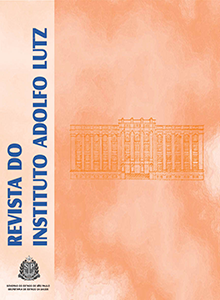Assessment of the antioxidant capacity and of the physical-chemicals parameters stability in homemade fruit nectars
Keywords:
orange (Citrus sinensis L. Osbeck), mango (Mangifera indica L.), passion fruit (Passiflora edulis), phenolic compounds, ascorbic acid, carotenoids
Abstract
The objective of the study was to evaluate the antioxidant capacity and the physical-chemical indicators of homemade nectars of orange, mango and passion fruit, kept under refrigeration (5 ± 2 °C) for 24 hours. The nectars were prepared in laboratory and kept under refrigeration simulating the domestic conditions. The samples analyses were performed after their preparations (T0) and during the refrigerated storage (1 h, 4 h and 24 h). Soluble solids, pH and color were determined by refractometry, colorimetry and potentiometry, respectively. Carotenoids and ascorbic acid were analyzed by high performance liquid chromatography, the concentration of phenolic compounds were determined by using Folin Ciocalteau reagent, and the antioxidant activity by the DPPH test. Ascorbic acid, β-carotene and phenolic compounds were identified in all of the analyzed nectars samples. The α-carotene and β-cryptoxanthin were found in orange nectar and the lycopene in mango nectar samples. During the refrigeration for 24 hours, the analyzed compounds and the antioxidant activity remained stable. In general, the physical-chemicals parameters also remained stable during the storage for 24 hours. In conclusion, under the conditions used in this study, the nectars might be considered as antioxidant sources, even if consumed after being prepared 24 hours before.
Published
2016-10-25
How to Cite
Silva, B. P. da, Balbino, K. P., Cardoso, L. de M., Aquino, P. P., Pinheiro-Sant’Ana, H. M., & Ribeiro, S. M. R. (2016). Assessment of the antioxidant capacity and of the physical-chemicals parameters stability in homemade fruit nectars. Revista Do Instituto Adolfo Lutz, 75, 01-10. Retrieved from https://periodicoshomolog.saude.sp.gov.br/index.php/RIAL/article/view/33518
Issue
Section
ORIGINAL ARTICLE










